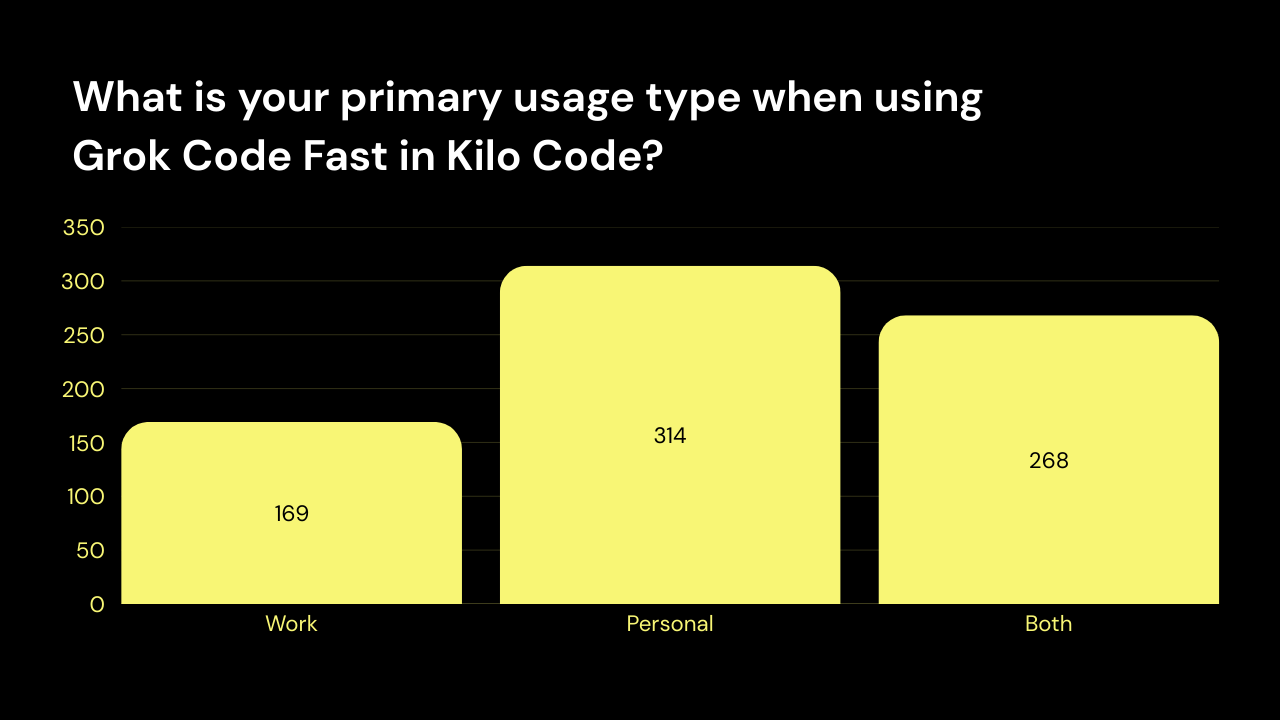AI Adoption Is Happening. With or Without You.
84% of developers use AI tools. 20% of companies have AI policies. Only 13% feel prepared to capture value from AI.
Today, 84% of developers are using AI tools. Only 20% of companies have an AI policy in place. This means your proprietary code is most likely in a ChatGPT window right now. Most companies watch developers go rogue with personal accounts, creating what I call the "BYOAI problem" - Bring Your Own AI.
And when we surveyed our users, we discovered that an alarming 58% of them were using Grok Code Fast for work tasks. xAI has been offering Grok Code Fast for free in exchange for the ability to train on their inputs - which is great for developers but not for businesses that want to ensure they know where their code is being used.
By the Numbers
58% using free tools that train on their code
95% of managers say AI adoption is critical in 12-24 months
Only 13% feel prepared
The Black Box Trap
95% of engineering managers say that AI adoption is critical. Most are stuck between two terrible options:
Option 1: Build It Yourself Sure, just hire a team of AI engineers (good luck - they're the most in-demand role right now), set up GPU infrastructure, implement audit logging, and maintain it forever. Only 13% of organizations report themselves as “ready to capture AI’s potential.” Meaning 9 in 10 companies admit they are not prepared to do so.
Option 2: Accept the Black Box and sign up for one of the many AI coding tools that are not transparent and lock you in. You'll get:
Mystery rate limits that appear unexpectedly
Opaque "fair use" policies that change on a whim
Silent model downgrades when you hit invisible thresholds
Zero visibility into actual costs until the invoice arrives
One Cursor user recently said that the pricing felt like a "bait-and-switch" - promised unlimited usage that quietly got gutted once they were subscribed.
The Black Box Math: You pay $20 or $100/month. They burn $500 in compute. You lose.
The Fix: Open Books, Not Black Boxes
Here's what engineering leaders actually need - and it's surprisingly simple:
📊 Real Usage Data: One dashboard showing exact models cost, not "credits"
🔄 Model Control: Switch providers at lunch if needed
🧰 No lock-in: Tools that don’t lockin, but are transparent and clear
🔒 Actual Security: Open source…or it's a liability
The VP of Engineering at Shopify recently shared their approach to AI adoption: "Start from yes." Don't begin with all the ways AI could go wrong. Start with the assumption that AI will accelerate your team, then work backwards to make it safe.
But "starting from yes" doesn't mean "accepting whatever vendors offer." It means creating an environment where developers can leverage AI freely within clear, transparent boundaries. The transparency movement is already happening. Forward-thinking companies are rejecting the black-box AI tools in favor of transparent infrastructure. Whether you build your own solution, use open-source tools, or work with transparent vendors, here’s what actually matters:
Open source core: You should be able to inspect, modify, or self-host your AI tools
Cost transparency: Subscription fees for platform features, usage-based pricing for AI at cost
Model freedom: Use any of the 400+ models, bring your own keys, run local models
Real analytics: See who on your team is using what, when, and why
No token buckets. No fair use gotchas. No silent downgrades.We built Kilo for Teams around these exact principles because we've been on both sides of this problem - as engineers hitting rate limits and as leaders trying to control costs. But these principles are bigger than any one vendor. The entire industry needs to move toward transparency.
What happens when teams get AI transparency right? Developers stop hoarding personal subscriptions and submitting expense reports. CFOs get predictable AI costs instead of surprise $50k invoices in their inboxes. Security teams sleep better with full audit trails and no mystery data handling. Productivity increases without rate limit interruptions grinding work to a halt.
Your Move: Transparency or Chaos
The companies that win with AI won't be the ones with the biggest budgets or the fanciest tools. They'll be the ones that give their dev teams transparent, reliable AI platforms that actually work.
Your developers are already using AI - that's not changing. The real question is whether you'll give them a sanctioned, secure way to do it, or keep forcing them to use personal accounts and hidden subscriptions that create security headaches and budget surprises.
The BYOAI era is here. Your developers are using AI either way. Give them transparency, or watch it happen in the shadows.



